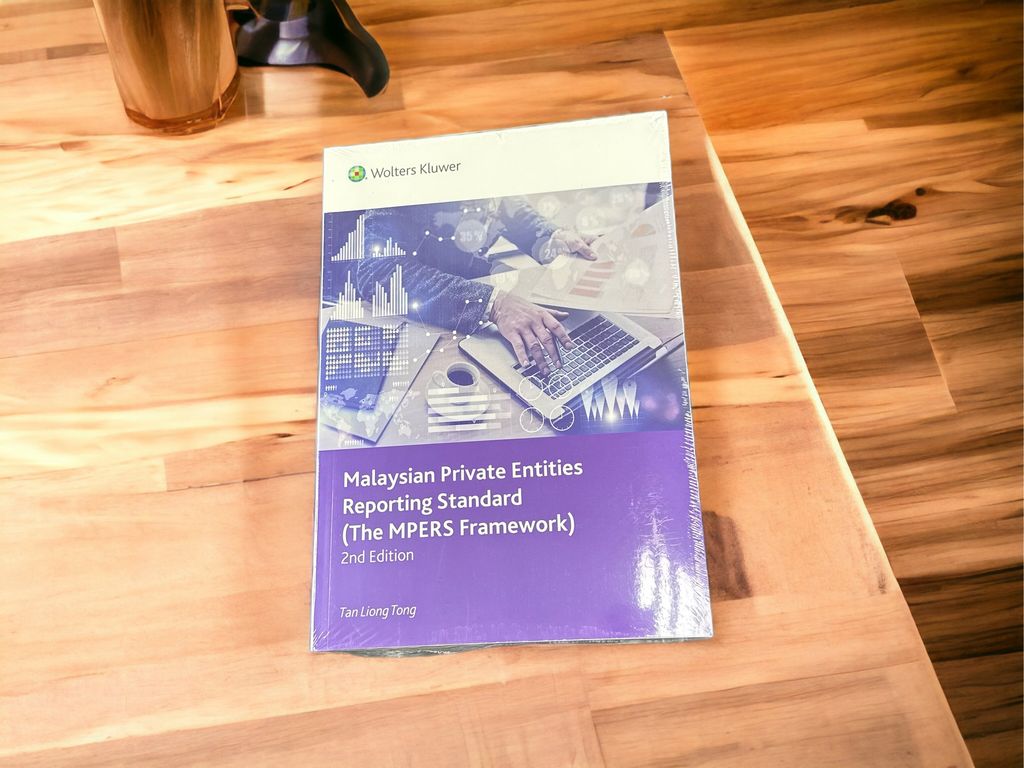Malaysian Private Entities Reporting Standard (The MPERS Framework), 2nd Edition
- Regular price
- RM 210.00
- Sale price
- RM 210.00
- Regular price
-
RM 210.00
Share
This 2nd Edition incorporates the new MPERS Framework, the 2015 Amendments to the MPERS and the Companies Act 2016. The application of the new MPERS and laws requires knowledge not just in accounting per se but also proficiency in the fields of economics, finance and statistics. Thus, it is a tremendous challenge for private entities which have adopted the MPERS as their accounting framework to continuously monitor, understand and comply with the financial reporting requirements.
This book focuses on accounting principles and serves to guide readers on the preparation and presentation of financial statements that are in compliance with the accounting pronouncements. Taking an issue-based approach, this publication explains the principles and issues in each section of the MPERS and relates them to actual practices in Malaysia. Where applicable, comparisons are also made with the statutory requirements, such as those of the Companies Act. In each accounting area, the principles and issues are summarised, explained, and demonstrated with illustrative questions and answers. Also included are sample disclosures of the new MPERS that may serve as guidelines for company practices. This book can also be used as a reference for local accounting and reporting practices because the examples provided include some of the latest issues and trends in private entity reporting.
Accounting practitioners, preparers and users of financial statements will find this book extremely handy in their work. Accountancy students in universities, students sitting for professional accountancy examinations, and post-graduate students majoring in accounting and finance should also find this book particularly useful when relating accounting theories and principles to actual practices.
Key Features & Benefits
- For each accounting topic, the principles and issues are summarised, explained, and demonstrated with an abundance of illustrative examples and solutions.
- Detailed discussions of the requirements of MPERS include the issues of recognition, measurement, presentation and disclosures. Each accounting chapter also does a comparison with MFRS.
- Model Financial Statements have been included which reference Sections of MPERS accordingly.
- One-stop, up-to-date resource that contains all the relevant information you need to do your MPERS financial reporting.
- A reference for local accounting and reporting practices because the examples provided include some of the latest issues and trends in private entity reporting.
- Accountancy students in universities, students sitting for professional accountancy examinations, and post-graduate students majoring in accounting and finance, should find this book particularly useful when relating accounting theories and principles to actual practices.
Topics Covered
Chapter 1: An Overview of Private Entity Reporting in Malaysia
Chapter 2: Conceptual Framework, Concepts and Pervasive Principles
Chapter 3: Presentation of Financial Statements
Chapter 4: Statement of Cash Flows
Chapter 5: Accounting Policies, Estimates and Errors
Chapter 6: Revenue
Chapter 7: Inventories
Chapter 8: Construction Contracts
Chapter 9: Property Development Activities
Chapter 10: Property, Plant and Equipment
Chapter 11: Investment Property
Chapter 12: Intangible Assets other than Goodwill
Chapter 13: Impairment of Assets and Discontinued Operations
Chapter 14: Basic Financial Instruments and Borrowing Costs
Chapter 15: Other Financial Instrument Issues
Chapter 16: Leases
Chapter 17: Income Tax
Chapter 18: Employee Benefits
Chapter 19: Share-Based Payment Transactions
Chapter 20: Provisions and Contingencies
Chapter 21: Government Grants
Chapter 22: Events after the End of the Reporting Period
Chapter 23: Liabilities and Equity
Chapter 24: Business Combinations and Goodwill
Chapter 25: Basic Consolidation and Separate Financial Statements
Chapter 26: Advanced Consolidation and Disclosures
Chapter 27: Joint Ventures and Associates
Chapter 28: Foreign Currency Translation
Chapter 29: Consolidated Statement of Cash Flows
Chapter 30: Related Party Disclosures
Chapter 31: Specialised Activities
Chapter 32: First-time Adoption of MPERS
Chapter 33: Hyperinflation
Chapter 33: A Comparative Analysis of PERS, MPERS and MFRS Frameworks







